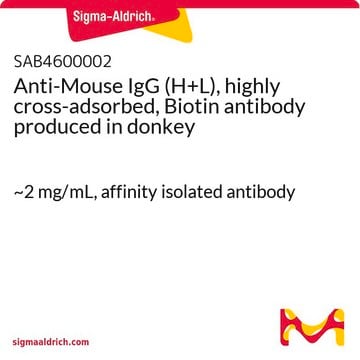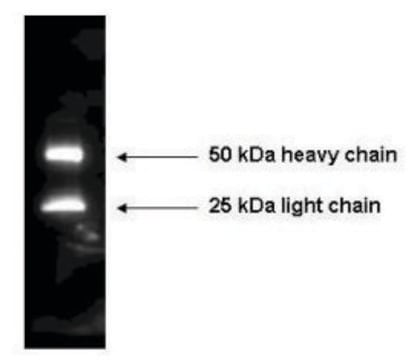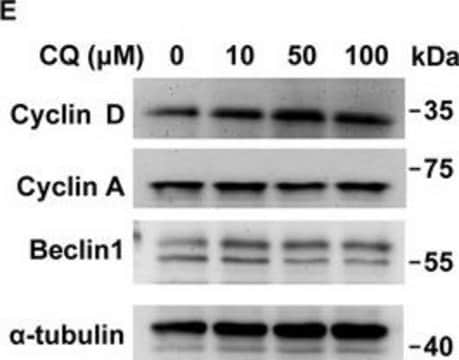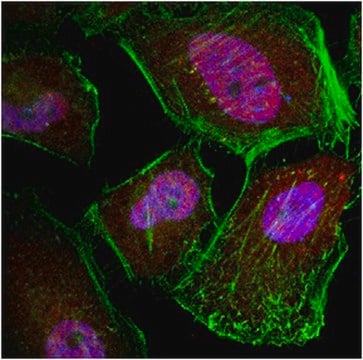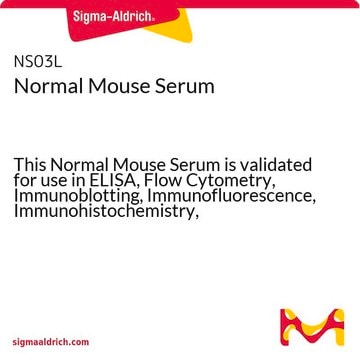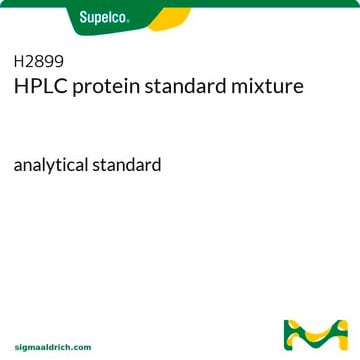Recommended Products
Assay
≥95% (SDS-PAGE)
Quality Level
form
lyophilized
manufacturer/tradename
Calbiochem®
storage condition
OK to freeze
solubility
water: 20 mg/mL
shipped in
ambient
storage temp.
−20°C
Related Categories
General description
Plasma protein that is useful as a stabilizing agent and a carrier protein.
Plasma protein that is useful as a stabilizing agent and as a carrier protein.
Application
Albumin, mouse has been used as a component of PBS for in vivo examination of (E, E)-1-fluoro-2,5-bis(3-hydroxycarbonyl-4-hydroxy)styrylbenzene (FSB) and yellow fluorescent protein (YFP) positive cells in mice.
Warning
Toxicity: Standard Handling (A)
Reconstitution
Following reconstitution, aliquot and freeze (-20°C). Stock solutions are stable for up to 6 months at -20°C.
Legal Information
CALBIOCHEM is a registered trademark of Merck KGaA, Darmstadt, Germany
Storage Class Code
11 - Combustible Solids
WGK
WGK 3
Flash Point(F)
Not applicable
Flash Point(C)
Not applicable
Certificates of Analysis (COA)
Search for Certificates of Analysis (COA) by entering the products Lot/Batch Number. Lot and Batch Numbers can be found on a product’s label following the words ‘Lot’ or ‘Batch’.
Already Own This Product?
Find documentation for the products that you have recently purchased in the Document Library.
Customers Also Viewed
Petar Marinković et al.
Brain : a journal of neurology, 142(4), 1051-1062 (2019-03-09)
Pathological alterations of tau protein play a significant role in the emergence and progression of neurodegenerative disorders. Tauopathies are characterized by detachment of the tau protein from neuronal microtubules, and its subsequent aberrant hyperphosphorylation, aggregation and cellular distribution. The exact
Christian Schön et al.
PloS one, 7(12), e53547-e53547 (2013-01-10)
Tauopathies are widespread neurodegenerative disorders characterised by the intracellular accumulation of hyperphosphorylated tau. Especially in Alzheimer's disease, pathological alterations in the retina are discussed as potential biomarkers to improve early diagnosis of the disease. Using mice expressing human mutant P301S
Arieke Suzanna Berendina Kampstra et al.
Annals of the rheumatic diseases, 78(7), 908-916 (2019-06-04)
Autoantibodies against post-translationally modified proteins (anti-modified protein antibodies or AMPAs) are a hallmark of rheumatoid arthritis (RA). A variety of classes of AMPAs against different modifications on proteins, such as citrullination, carbamylation and acetylation, have now been described in RA.
Our team of scientists has experience in all areas of research including Life Science, Material Science, Chemical Synthesis, Chromatography, Analytical and many others.
Contact Technical Service

